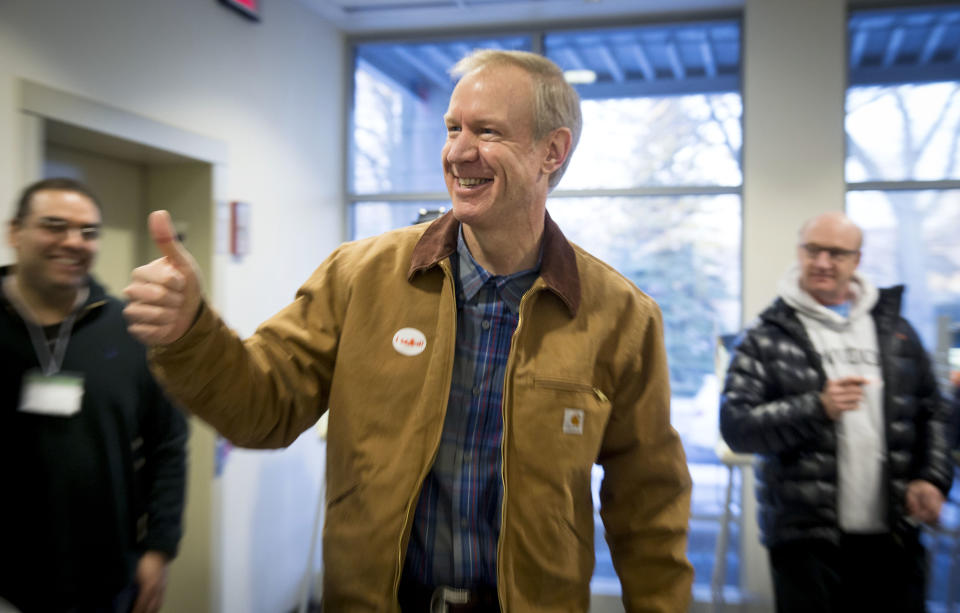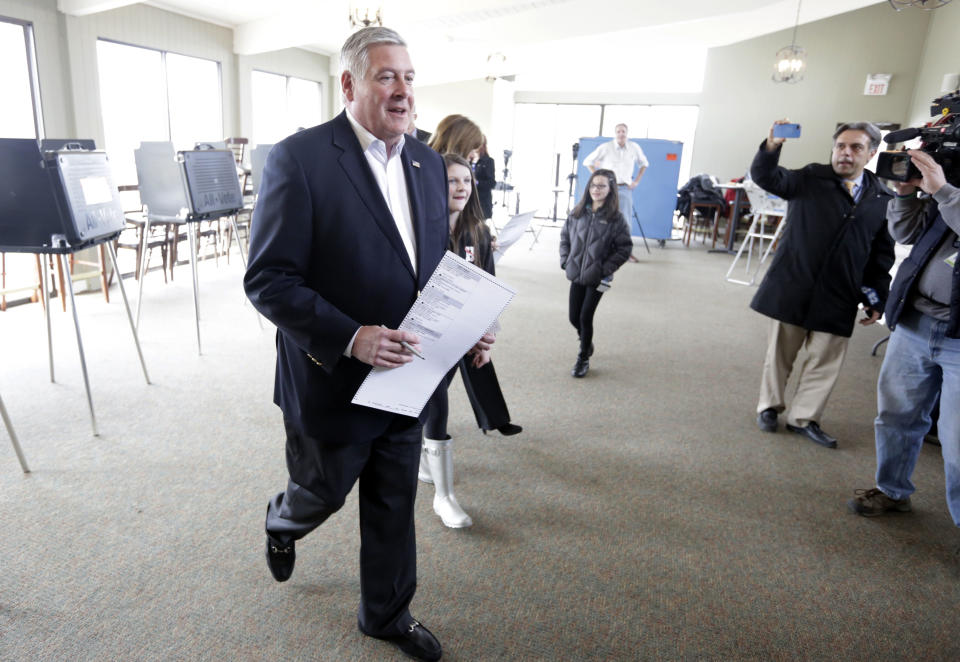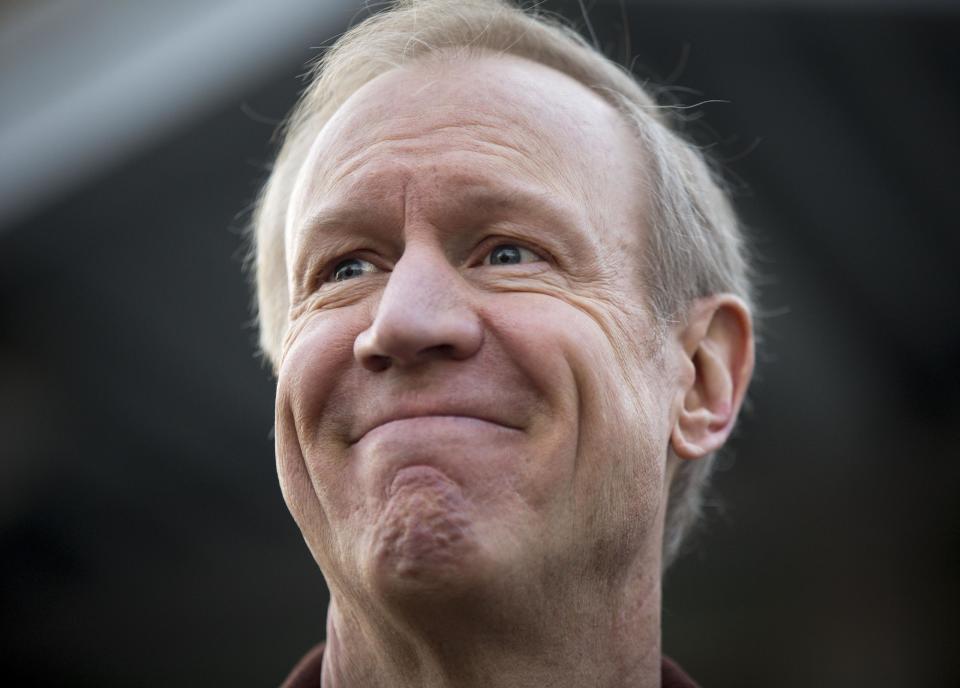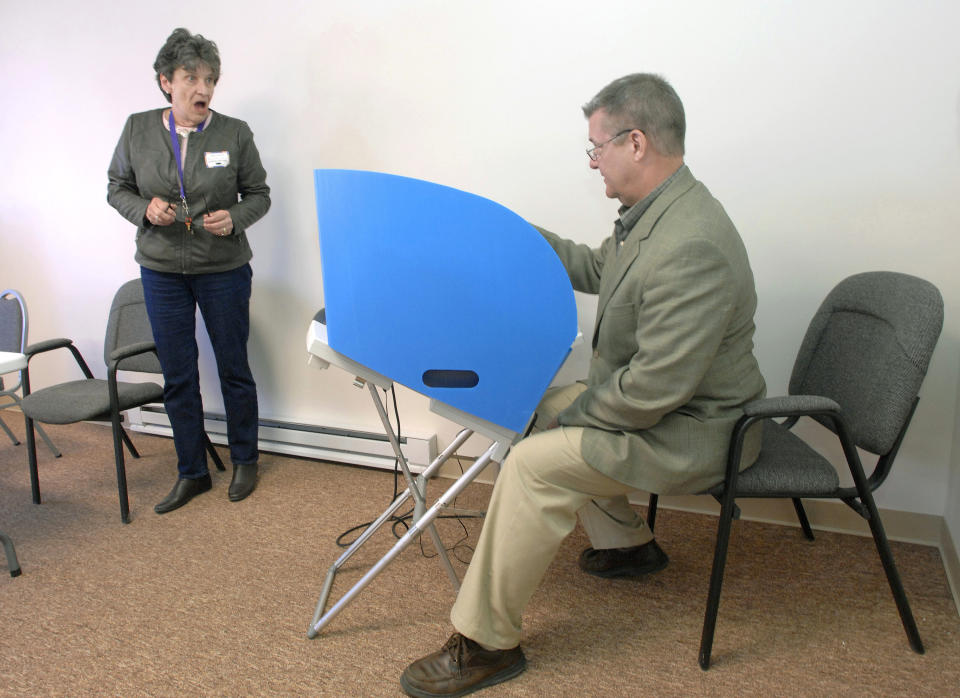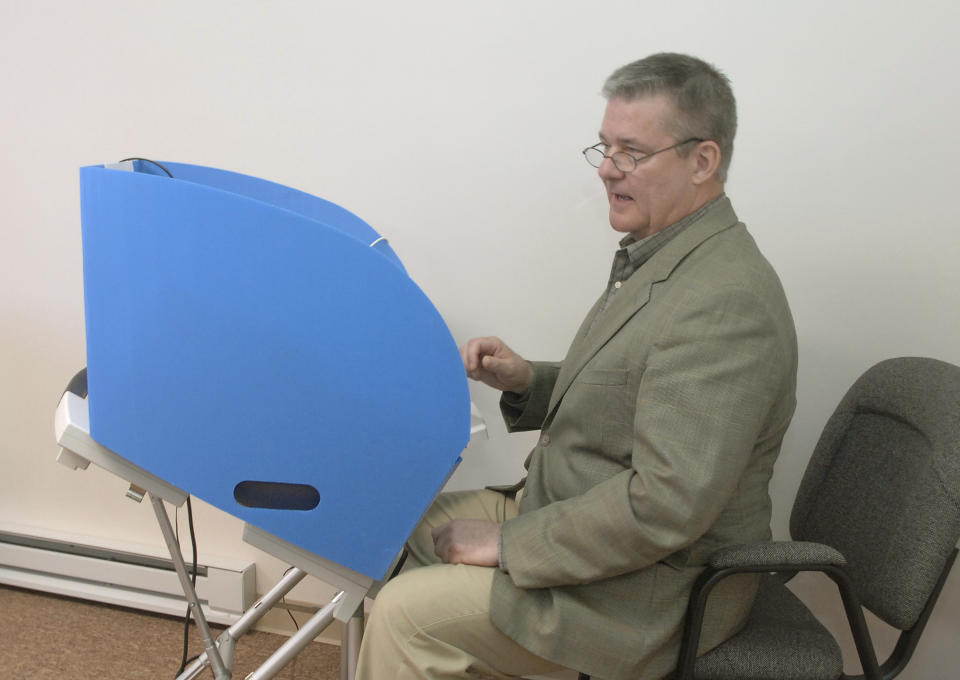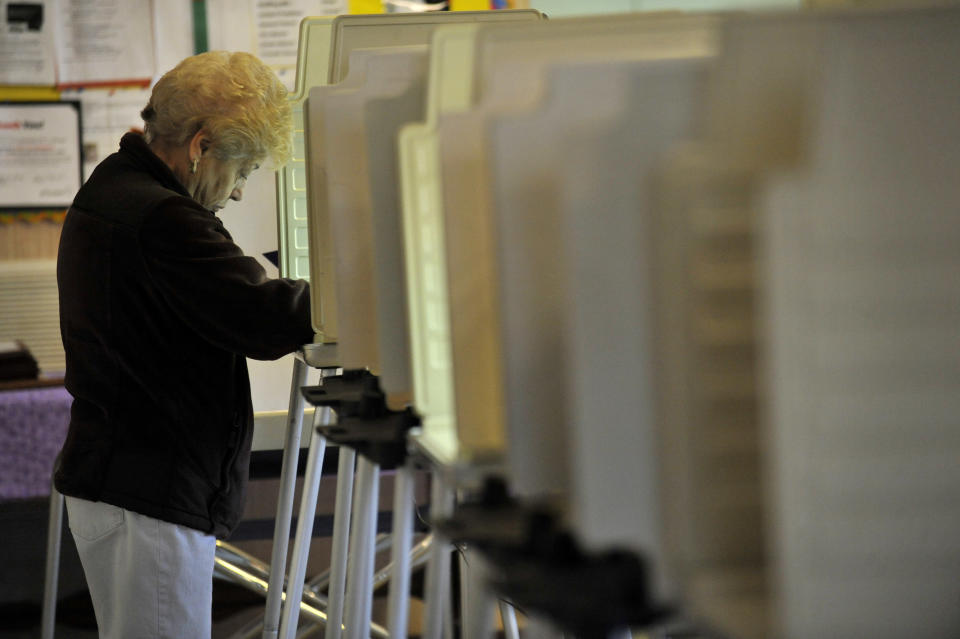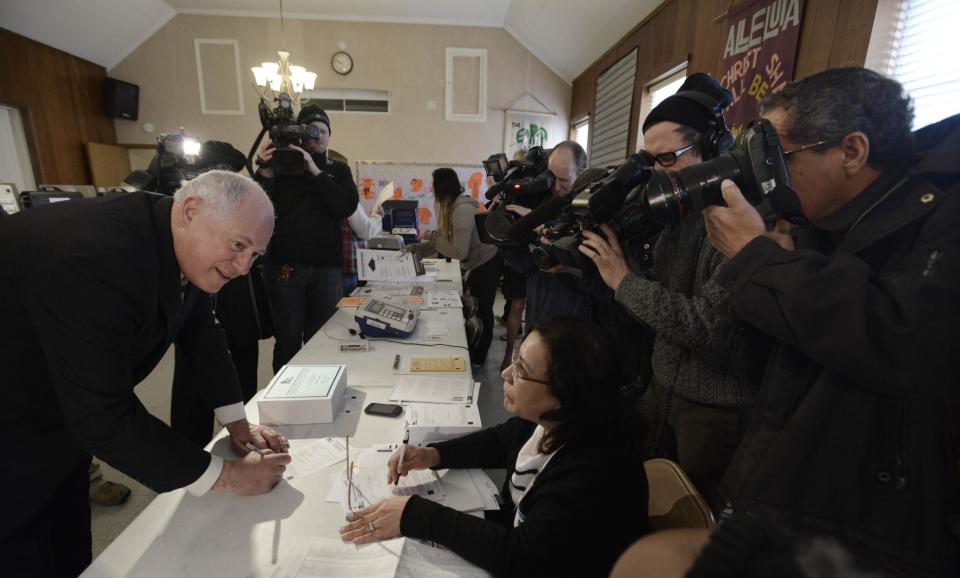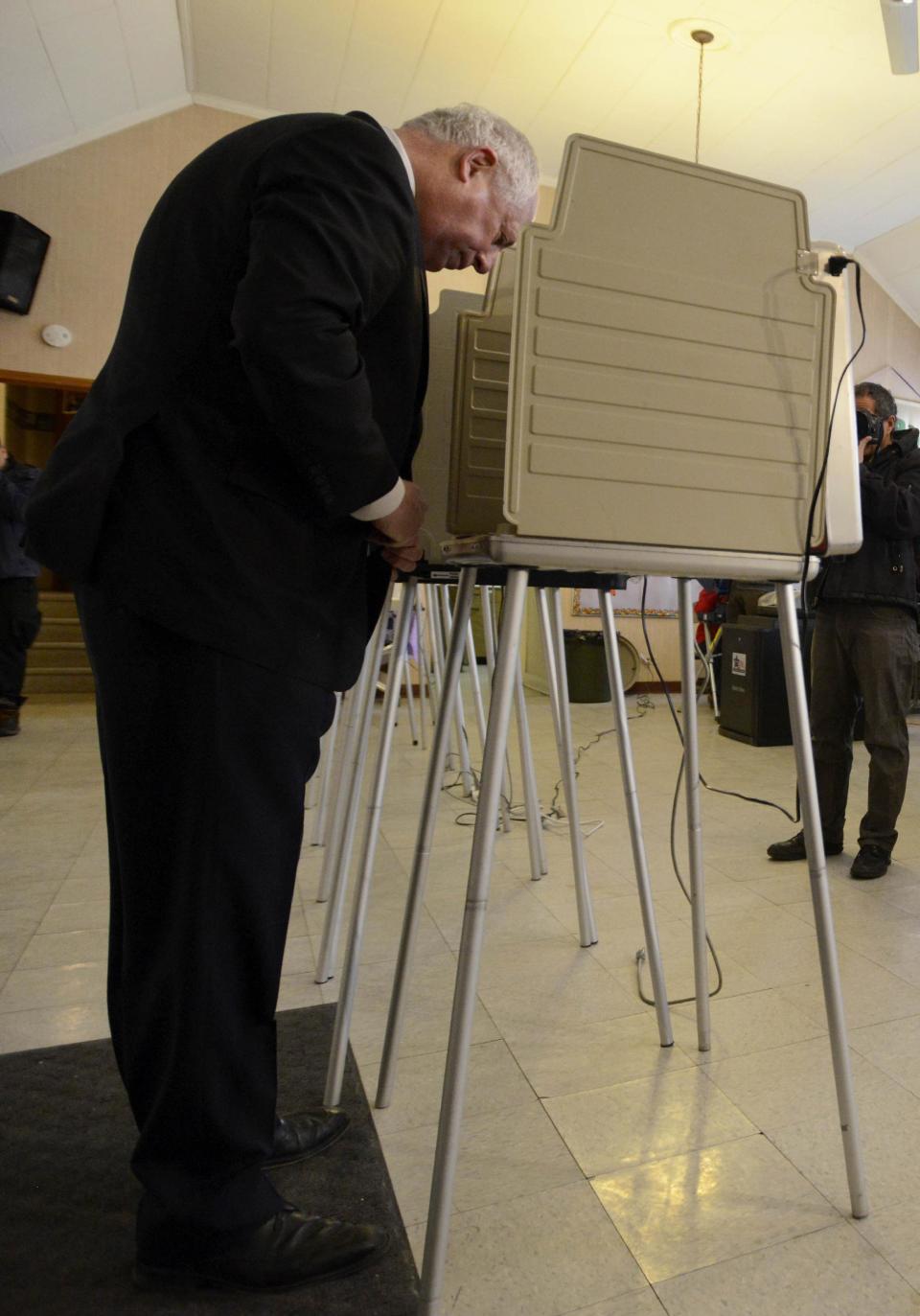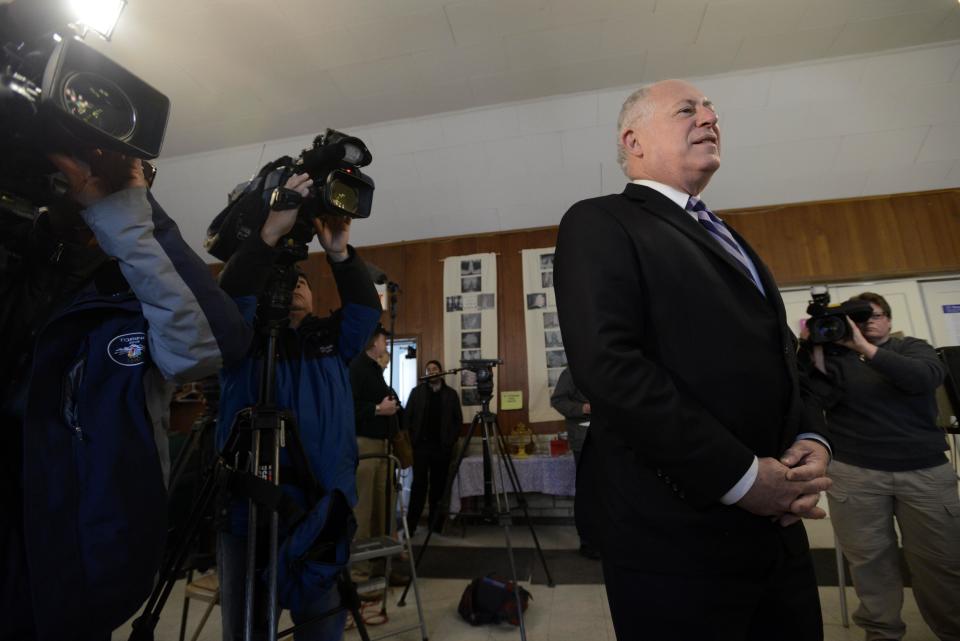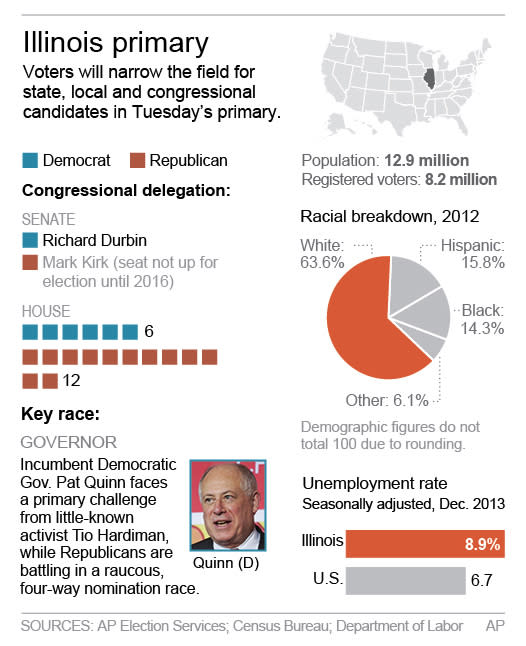Illinois GOP voters seek to upend political order
CHICAGO (AP) — With a hunger to reclaim the governor's office, Republican voters set out Tuesday to shake up Illinois' Democratic-dominated political order, energized by candidates' talk of taking on unions, unseating "career politicians" and righting the state's troubled finances.
The talk at polls from Chicago suburbs to Illinois' St. Louis suburbs was of reversing the state's indebtedness and keeping businesses from leaving Illinois.
To many, the governor's race was shaping up as a potentially transformative battle over union influence, with some voters saying they want to break an alliance between organized labor and longtime Democratic control of the governor's office and state Legislature.
Organized labor was battling back out of concern that the leading Republican candidate, multimillionaire venture capitalist Bruce Rauner, could seek to weaken unions in the same way GOP governors have in other states across the Midwest.
Rauner, who has never held public office but leads the four-person Republican field after spending millions on his campaign, says he would model his governorship after those of Wisconsin Gov. Scott Walker and former Indiana Gov. Mitch Daniels. Both significantly rolled back union power in what they said were necessary steps to attract business and reduce costs. Rauner faces longtime lawmakers: state Sens. Bill Brady and Kirk Dillard, and state Treasurer Dan Rutherford.
"Rauner is going to be a bull in a china shop; we need a bull," said Tom Sommer, a 57-year-old real estate broker from the Chicago suburb Hinsdale. "It's not going to be more of the same."
Issues such as a public pension overhaul and high taxes "are coming to the fore and the old guard is not going to handle that," Sommer said, adding that he voted for Rauner because of his tough talk against the unions that represent public sector workers. That sentiment persists despite Democratic Gov. Pat Quinn's push to fix Illinois' finances by overhauling the heavily underwater public pension systems, which earned him the unions' ire.
Rauner has also won supporters with his call for term limits.
Union leaders, meanwhile, sought Rauner's defeat by encouraging members to pull Republican ballots and vote for Dillard, who picked up several union endorsements.
The typically left-leaning unions spent more than $6 million on the GOP primary, both in anti-Rauner and pro-Dillard ads. Rauner raised more than $14 million, including $6 million of his own money — more than any candidate seeking a gubernatorial nomination in state history.
Rauner has warned supporters about the unions' efforts, saying Quinn's "allies" were trying to hijack the election. He said legislative term limits could break the labor-Democratic alliance.
Republicans haven't held the governor's office since 2003 when Democrat Rod Blagojevich — now in prison for corruption — took office. Democrats have almost total control of statewide offices and the Illinois House and Senate.
In the southern Illinois, voters had another reason to want to upend the state's political order, saying they felt marginalized and neglected by a political balance weighted toward Democrats and the Chicago region.
"In the last 10 years, things have gotten really bad (in the state)," said Marty Johns, 48, of Godfrey. "Throw out all the Democrats in Chicago. All of our money goes up there while southern Illinois gets the crumbs."
Johns said he voted for Dillard to "remove Quinn."
But others said they liked Quinn, whose administration has avoided major scandals — unlike his two predecessors who went to prison.
"I think he's honest and he does the best he can do with what he's got to work with," said Ed Kline, a 61-year-old LeRoy farmer who voted for Quinn.
Quinn, who was Blagojevich's lieutenant governor and assumed the office after he was booted amid a corruption scandal, easily defeated a lesser-known primary challenger Tio Hardiman in his bid for a second full term.
Brady won the 2010 GOP nomination, but lost the general election to Quinn. Brady, of Bloomington, said he built the support during that bid to defeat Quinn this time around.
Rutherford, of Chenoa, has done little campaigning recently. He's all but conceded defeat after a former employee filed a federal lawsuit accusing Rutherford of sexual harassment and political coercion. Rutherford denied the allegations.
Voters also will choose between two Republicans vying to take on U.S. Sen. Dick Durbin, the Senate's second-ranking Democrat. That primary pits dairy magnate and state Sen. Jim Oberweis, who has lost five of his six bids for public office, against businessman and West Point graduate Doug Truax.
Also on the ballot are primary races for the U.S. House, Illinois Legislature and statewide constitutional officers.
___
Follow Sara Burnett at https://twitter.com/sara_burnett and Sophia Tareen at https://twitter.com/sophiatareen
___
Associated Press writers Don Babwin in Hinsdale, Ill., Jim Suhr in Godfrey, Ill., David Mercer in LeRoy, Ill., John O'Connor in Springfield, Ill., Michael Tarm in Winnetka, Ill., contributed.

